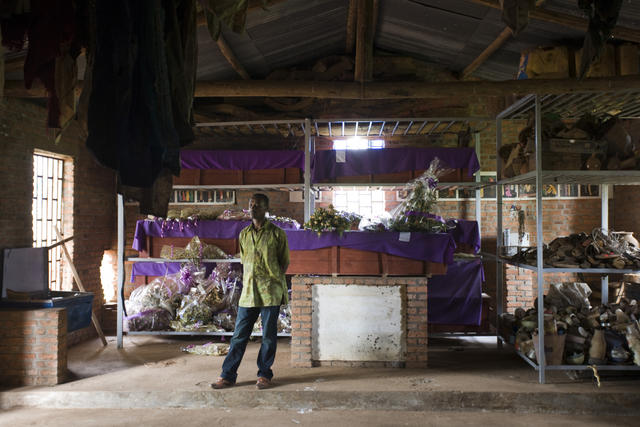
Restorative Justice for Survivors of the Rwandan Genocide.
Noam Schimmel, Huffington Post.
Who knows best what the needs of Rwandan genocide survivors are as they seek to rebuild their lives?
Genocide survivors themselves.
As the Rwandan New Times recently reported, an October 2012 discussion paper by a collective of genocide survivor organizations including IBUKA, AVEGA, AERG, and Survivors Fund (SURF) called for a reparation fund to enable restorative justice for survivors of the genocide.
In response, it is imperative that Rwanda show the same zeal and commitment to restorative justice for genocide survivors as it does for reconciliation.
Now is the time for decisive and bold leadership and action.
The needs of genocide survivors are not being met and this is a transparent reality.
Genocide survivors have a right to restorative justice. The recognition and fulfillment of that right will contribute immensely to their capacity to rebuild their lives and integrate successfully.
Ultimately, it will enhance the Rwandan government’s efforts to advance peace and reconciliation across the country.
Failing to provide adequately for restorative justice for genocide survivors will undermine the Rwandan government’s aims to create greater social cohesion amongst all Rwandans and to make reconciliation sustainable.
Restorative justice for Rwandan genocide survivors is not only in the interest of genocide survivors but of all Rwandans.
Above all, and most importantly, it is a matter of conscience and doing what is right.
It reflects the best spirit of Rwandan social solidarity post genocide to reach out and support the most vulnerable and marginalized not as a matter of charity – for survivors neither ask for nor need charity – but as a matter of justice.
Surely the Rwandan government alone cannot be responsible for restorative justice given its limited resources and diverse responsibilities.
But it has an essential role to play in leading efforts to secure restorative justice for genocide survivors and in ensuring that such efforts yield tangible benefits for survivors.
The international community, the United Nations, bilateral and multilateral aid agencies, and international NGOs pursuing development in Rwanda all have the responsibility to contribute financially and organizationally to restorative justice efforts.
For far too long too many have spoken but not taken action.
It is unacceptable for the Secretary General of the United Nations to speak at the Kigali Genocide Memorial about the horrors of the genocide and the immense losses Rwandans sustained and yet to fail to provide crucial leadership to actualize the multiple General Assembly resolutions calling for the United Nations and its members states to advance restorative justice for survivors of the genocide.
The United States, the European Union, Japan, and the United Nations – all of which make significant contributions to support development in Rwanda – need to honor their responsibility to aid genocide survivors in particular and without delay.
A formal mechanism, such as an International Trust Fund, needs to be established with a dedicated mandate to advance restorative justice for Rwandan genocide survivors.
Genocide survivors have unique needs and distinctive vulnerabilities as a result of the losses they suffered during the genocide, the violence they experienced and witnessed, theft of their properties and lands, the destruction of their families and communities, and the physical and psychological impairments caused by the genocide which continue to threaten their health and well being.
As the twentieth anniversary of the genocide approaches we must acknowledge that restorative justice is as imperative now as it has always been and even more so.
Its urgency only grows as many survivors struggle with inadequate housing, a lack of psychological support to address trauma, insufficient educational opportunity, and extreme poverty that exacerbates their vulnerability and marginalization.
Rwanda’s liberation that began in 1994 when the genocide was halted and the genocidal regime routed will remain incomplete until all survivors can live lives of dignity and security which only a comprehensive framework for implementing restorative justice can provide.
This article was first published on Huffington Post on 7th June 2013.
